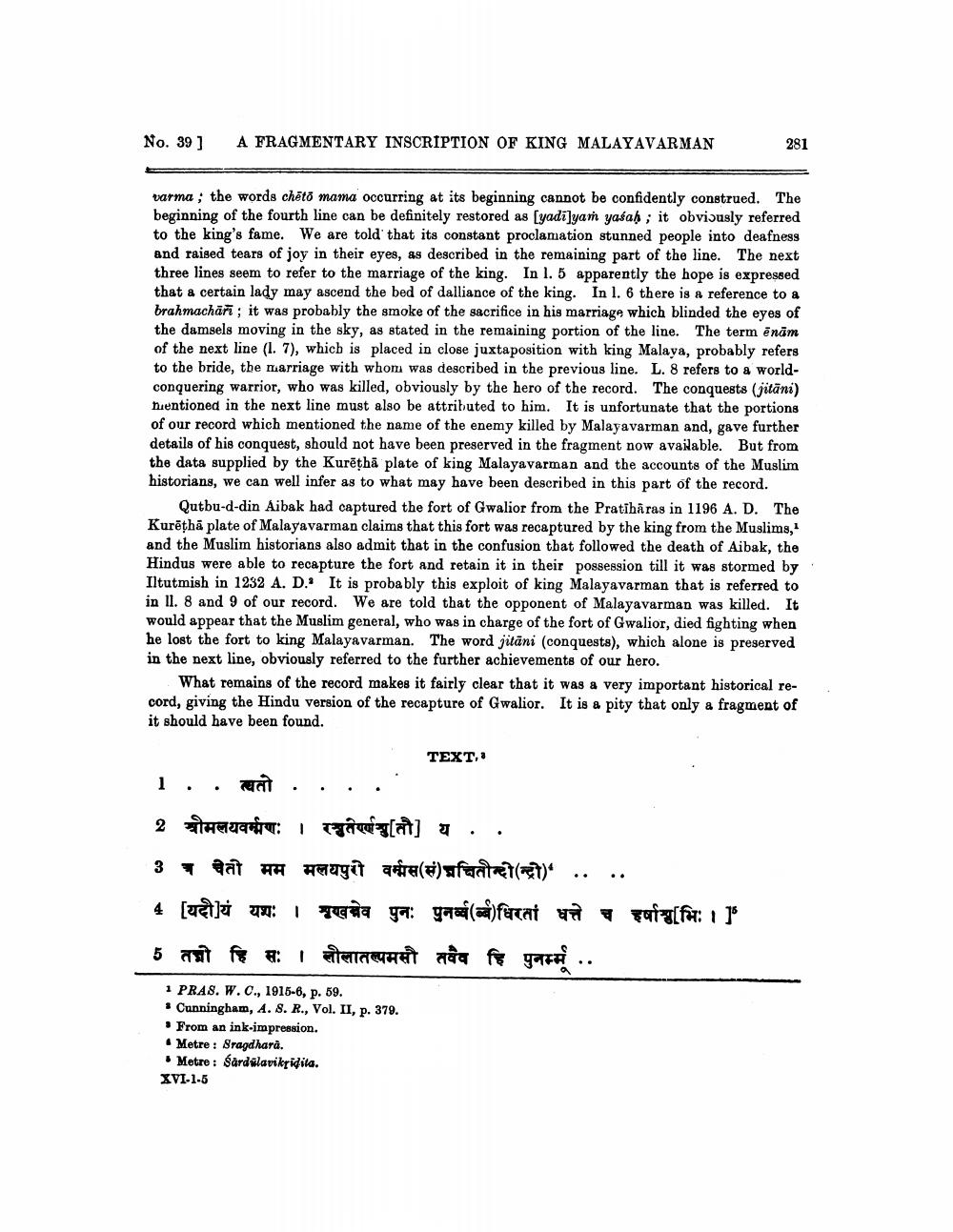________________
No. 39 ]
A FRAGMENTARY INSCRIPTION OF KING MALAYAVARMAN
281
varma, the words chēto mama occurring at its beginning cannot be confidently construed. The beginning of the fourth line can be definitely restored as [yadilyar yasah ; it obviously referred to the king's fame. We are told that its constant proclamation stunned people into deafness and raised tears of joy in their eyes, as described in the remaining part of the line. The next three lines seem to refer to the marriage of the king. In 1. 5 apparently the hope is expressed that a certain lady may ascend the bed of dalliance of the king. In 1. 6 there is a reference to a brahmachañ ; it was probably the smoke of the sacrifice in his marriage which blinded the eyes of the damsels moving in the sky, as stated in the remaining portion of the line. The term ēnām of the next line (1.7), which is placed in close juxtaposition with king Malava, probably refers to the bride, the marriage with whom was described in the previous line. L. 8 refers to a worldconquering warrior, who was killed, obviously by the hero of the record. The conquests (jitāni) nientioned in the next line must also be attributed to him. It is unfortunate that the portions of our record which mentioned the name of the enemy killed by Malayavarman and, gave further details of his conquest, should not have been preserved in the fragment now available. But from the data supplied by the Kurēthā plate of king Malayavarman and the accounts of the Muslim historians, we can well infer as to what may have been described in this part of the record.
Qutbu-d-din Aibak had captured the fort of Gwalior from the Pratihāras in 1196 A. D. The Kurēthā plate of Malayavarman claims that this fort was recaptured by the king from the Muslims, and the Muslim historians also admit that in the confusion that followed the death of Aibak, the Hindus were able to recapture the fort and retain it in their possession till it was stormed by Iltutmish in 1232 A. D. It is probably this exploit of king Malayavarman that is referred to in II. 8 and 9 of our record. We are told that the opponent of Malayavarman was killed. It would appear that the Muslim general, who was in charge of the fort of Gwalior, died fighting when he lost the fort to king Malayavarman. The word jitāni (conquests), which alone is preserved in the next line, obviously referred to the further achievements of our hero.
What remains of the record makes it fairly clear that it was a very important historical record, giving the Hindu version of the recapture of Gwalior. It is a pity that only a fragment of it should have been found.
TEXT,
1 . . . . . ... 2 Arauad i gydanty[at] o.. 3 qat i wanga ame() ufuata (1) .... 4 [uretja pa i Tua ya: gazilefacat ya rafi[fat: 1 ] 5 तज्ञी हि सः । लीलातल्पमसौ तवैव हि
1 PRAS. W.C., 1915-6, p. 59. • Cunningham, A. 8. R., Vol. II, p. 379. • From an ink-impression. • Metre : Sragdharà. • Metre : Sardulavikridita. XVI-1-5




